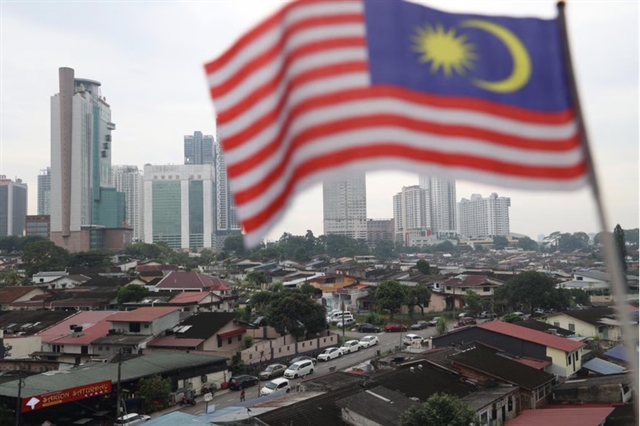 World
World


|
| Formed in 2015, Amanah has continued to take a middle-of-the-road stance on Islamic and sensitive Malay issues. THE STRAITS TIMES/ANN |
KUALA LUMPUR – A small party in Malaysia’s governing coalition, which has the huge task of corralling Malay-Muslim voters, is facing an uphill climb to maintain its relevance in the country’s crowded political field.
Parti Amanah Negara, with just eight seats in Parliament, is a moderate Islamic party within Prime Minister Anwar Ibrahim’s Pakatan Harapan (PH) alliance.
But Amanah’s voice is hardly heard in the rowdy tumble of Malaysian politics, where hot issues over race and religion are regularly played up to megaphone levels.
Formed in 2015 by dissidents of conservative Parti Islam SeMalaysia (PAS), Amanah has continued to take a middle-of-the-road stance on Islamic and sensitive Malay issues, which has failed to excite the Malay electorate.
“After 10 years in operation and being part of the federal government twice, Amanah’s performance has been quite static,” Dr Mohd Yusri Ibrahim, a policy studies lecturer at Universiti Malaysia Terengganu, told The Straits Times.
He said many Malay-Muslim voters are more drawn to parties that emphasise strong support for Islam and the special privileges of Malays. Amanah has tried to move forward by touting a progressive Islamic agenda, but this “has failed to gain the support of Muslims”, he added.
The party will hold its three-day annual convention from Jan 24 to 26 in Klang city, central Selangor state, where it hopes to refocus the energy of its 250,000 members.
“Faced with increasingly dynamic political challenges, Amanah needs to gear up from every angle,” Amanah’s vice-president and the country’s Health Minister, Dzulkefly Ahmad, said on Facebook on January 22.
Malay-Muslims, who represent some 60 per cent of Malaysian voters, have largely remained with the two main Malay-Muslim opposition parties, PAS and Malay-based Parti Pribumi Bersatu Malaysia, as seen in the results of the August 2023 elections involving six states – of which the PH alliance and its unity government ally Barisan Nasional (BN) won three.
PH needs to draw more support from Malay voters after getting just around 33 per cent of total votes from the community in the November 2022 General Election. This compared with about 54 per cent of Malay votes amassed by the alliance led by PAS and Bersatu then.
Indeed, when yet another sensitive issue on Islam or Malays is hotly debated, Umno – another member of Datuk Seri Anwar’s multi-coalition government – would be the one often appearing at the forefront, casting harsh words at Malaysia’s ethnic minorities.
Amanah has two Cabinet ministers in the Anwar government: party president Mohamad Sabu, who is Minister of Agriculture and Food Security, and Dzulkefly. The party also has two deputy ministers and three senators.
Part of the challenge faced by Amanah is the size, history and influence of its political nemesis.
Its rival PAS has 43 federal lawmakers, the biggest number held by a single party in Parliament, and a membership of one million.
The Islamist opposition party, formed six years before the country’s 1957 independence, also controls four state assemblies in Malaysia, including its stronghold states of Kelantan and Terengganu. PAS has a total of 150 state assemblymen, compared with Amanah’s 11.
Still, Amanah’s youth wing chief, Senator Hasbie Muda, believes the party’s hard work on the ground has resulted in an uptick in support over nearly a decade.
“Amanah is increasingly accepted, especially in the opposition stronghold states,” Hasbie told ST. PAS also controls the other two Malay-belt states, Kedah and Perlis.
There is time to catch up as the next general election is due only in early 2028, but Amanah needs to shore up ground support before then, experts say.
“Amanah programmes are getting more response now compared with when the party was first set up (in 2015),” Hasbie said, adding that the party aims to boost the service record of its lawmakers and government workers.
Yusri said his own studies on the ground showed that Amanah’s popularity among Malay-Muslims had never exceeded 5 per cent out of respondents surveyed.
Much of its support comes from the urban, mixed-demographic areas, and from the backing of larger PH coalition parties – the Chinese-led Democratic Action Party and Mr Anwar’s Parti Keadilan Rakyat.
In a recent comment on Amanah’s Facebook page, a disgruntled poster wrote: “The youth wing is weak and directionless... Afraid to speak out when Islam is being trampled on.”
But Yusri said Amanah need not make knee-jerk responses to every controversial issue that hits the headlines, the latest being whether chicken ham sandwiches sold at a convenience store in a Kuala Lumpur university were halal or not.
“They do not need to take the easy road of creating drama over simple issues that can be resolved by the administration. But they need to be smarter in positioning themselves in important and real issues that are involved with empowering the Malays and Islam,” he added. THE STRAITS TIMES/ANN




